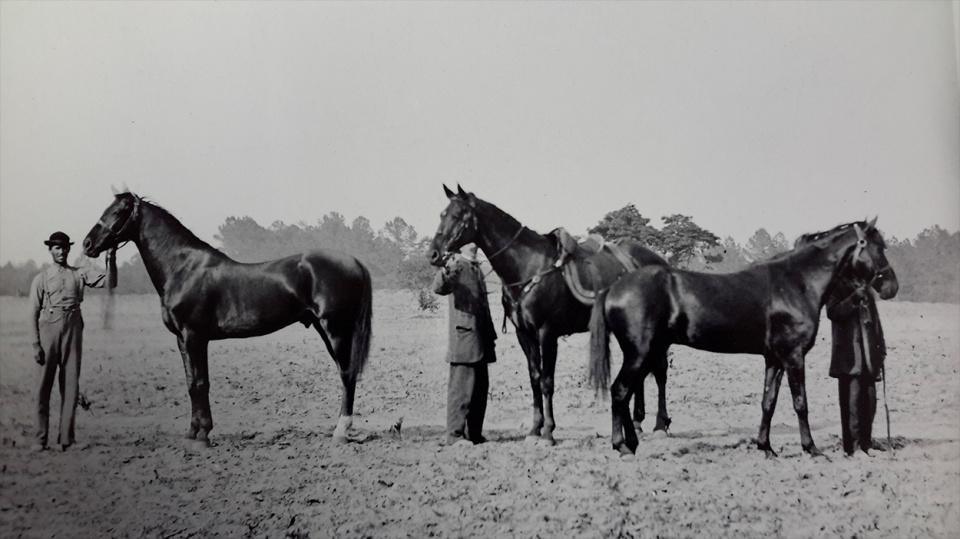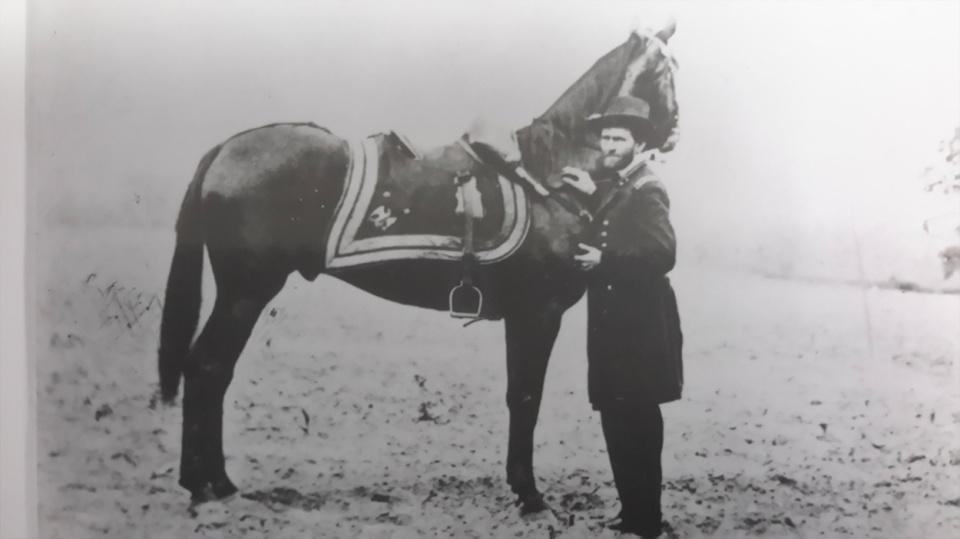- It may come as a surprise to learn that Grant’s true dream was to teach college mathematics. He apparently did not want to attend West Point, and after graduating Grant enlisted in the Mexican War not because he believed in it but because he thought his West Point oath obligated him to do so.
- During Grant's years of service as a Union officer, he climbed to the highest rank in the United States Army. In 1866 Grant was appointed General of the Armies of the United States, a position that only George Washington had held before him. On July 25, of the same year, Congress created a new rank of “General” making Ulysses S. Grant the first four-star General in U.S. history.
- Despite his monumental accomplishments, Grant did not possess the physical impression of greatness. Upon entering West Point, Grant stood 5 feet 1 inch tall, a mere one inch over the academy’s minimum height requirement. By graduation, he stood 5 feet 7 inches tall with a slight, but muscular build. He had soft blue eyes, wavy brown hair, thin lips, and delicate hands with long, slim fingers. He wore a full beard and mustache. Alexander Stephens who met Grant in 1865 while on a peace mission describes him as follows, “I was instantly struck with the great simplicity and naturalness of his manners and the entire absence of everything like pretention, show or even the usual military air or manner of men in his position. There was nothing in his appearance or surroundings which indicated his official rank. There were neither guards nor aids about him.” Photographs of Grant in full dress uniform confirm this.
- One rather amusing and symbolic incident which occurred during the surrender of Appomattox Court house, was when Grant’s aid was asked to prepare a fair copy of the terms of surrender, he found that he had no ink, and had to borrow some from Lee’s staff officer. Later when that officer attempted to write Lee’s reply, he discovered that he had no paper and had to borrow some from one of Grant’s men. In that strange hour each group discovered its need for the other side.
- There was an event that could have possibly changed the course of the war. While in New Orleans, some well-meaning officers gave Grant an unusually spirited and seldom ridden horse, knowing Grant’s proficiency in horsemanship. The horse shied at a locomotive and fell on him. Grant was knocked unconscious and bruised all the way from leg to armpit. For a week he couldn’t even turn over in bed, and remained bedridden for several weeks. When he was finally able to walk, he used crutches until his swollen leg healed. Gen. William T. Sherman took care of all the routine administrative decisions during the weeks of convalescence.
- While in England years later, on his triumphal trip around the world, the Duke of Cambridge suggested a grand parade of his army to honor Grant. Grant’s reply, as recorded in his Memoirs, is significant, “I told him I never wanted to see another army parade.” Elsewhere, he is reported to have said that he never wanted to command another army.
Some Accomplishments During Grant’s Administration:
- Grant secured ratification of the Treaty of Washington in 1871. The United States and Great Britain were the first countries to set an example to the world of “settlement by arbitration.”
- He was the First President to propose a Civil Service based on merit, it was accepted in 1883.
- He developed an Indian Commission to improve quality of life.
- He started the study of water resources and the problems of water shed in California.
- He put forth efforts to establish better educational facilities.
- He implemented the enunciation of a tariff policy.
- And finally, while President, historians have recorded that Grant’s main concern was for the public debt. During his two administrations, national debt and taxes were reduced.
A Bit of Trivia About Grant:
- Grant was an expert checker player and was always looking for a challenge. One story states that while living in Detroit, he rode ten miles to engage with an anonymous shoemaker. The match was a draw and was then decided by a foot race, which Grant easily won and he subsequently captured the small wager.
- Ironically, the man who fought in some of the most brutal and bloody battles was particularly squeamish. He became nauseous at the sight of animal blood and insisted that his meat be well done. Grant also never consumed fowl stating, “I could never eat anything that went on two legs.”
- On June 28, 1870, President Grant signed a bill declaring Christmas a national holiday.
- Grant loved his cigars, smoking as many as 20 a day!
- The United States Congress established Yellowstone National Park in 1872 and on March 1, 1872, President Ulysses S. Grant signed the Yellowstone National Park Protection Act into law. The world’s first national park was born.
- General Grant loved horses and was probably the greatest equestrian in United States history. He had three horses that he rode throughout the war, Cincinnati, Egypt, and Jeff Davis, seen pictured in the photos.
- Grant’s favorite and most famous Civil War horse was named Cincinnati, pictured in the photo with Grant. After the battle of Chattanooga, Grant was in St. Louis when an ailing man gave him the valuable horse. Grant found Cincinnati to be gentle and quiet until he was ridden into battle, during which time he was full of spirit. Cincinnati was Grant’s battle charger throughout the war, and it was Cincinnati who delivered Grant to the Confederate surrender at Appomattox Court House. After the war, the horse retired in the White House Stables. It is said that he was once offered $10,000 in gold for the horse, but he refused. Grant rarely permitted anyone to ride the horse with two exceptions: Admiral Daniel Ammen, who saved Grant from drowning when he was a schoolboy and Abraham Lincoln who spent the latter days of his life with Grant.
- And lastly, my personal favorite, did you know that Grant was once pulled over for speeding while driving his carriage by the White House? The surprised and embarrassed policeman apologized after recognizing the President. Grant told him to do his duty—Grant received a $20 fine!


